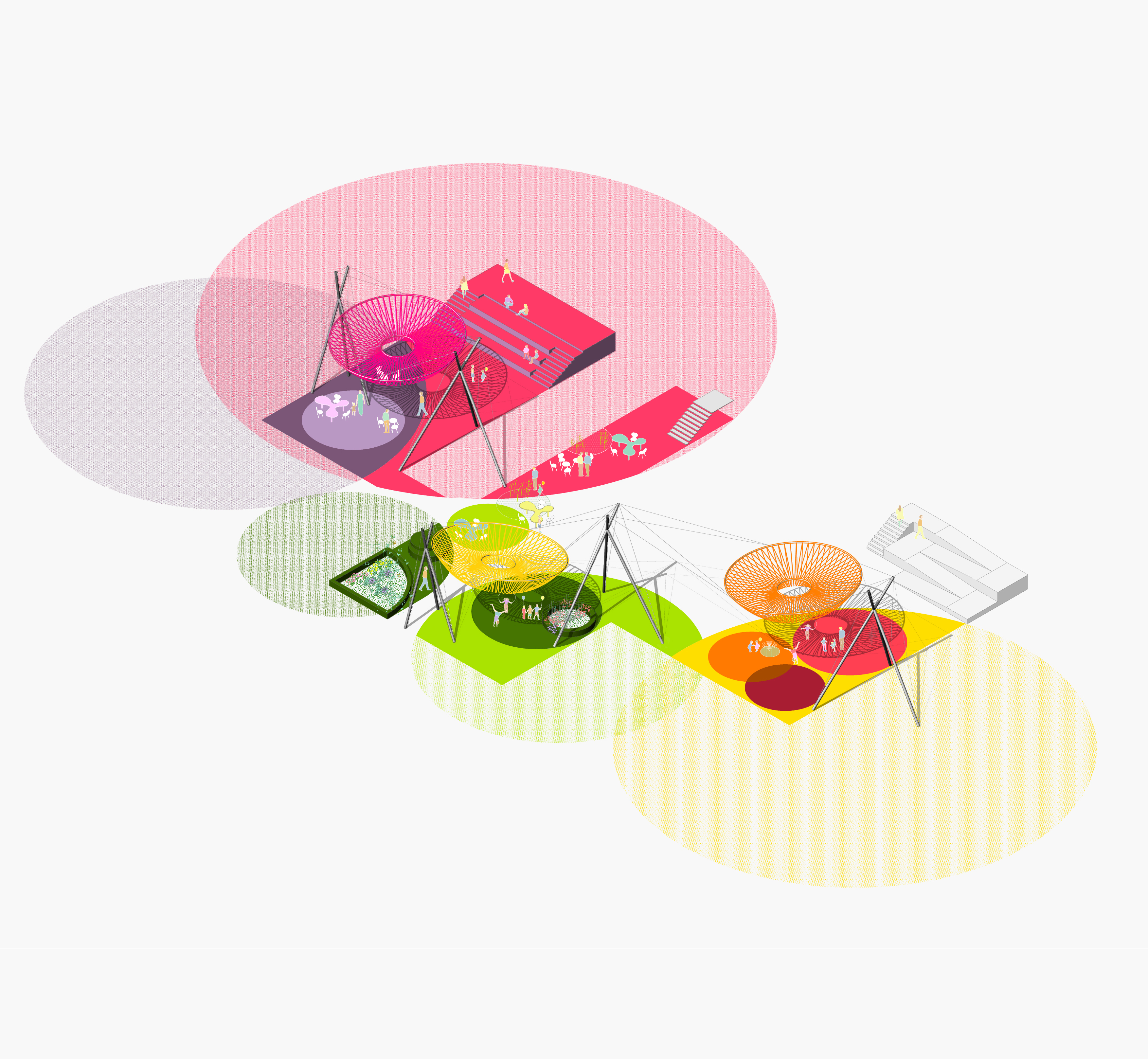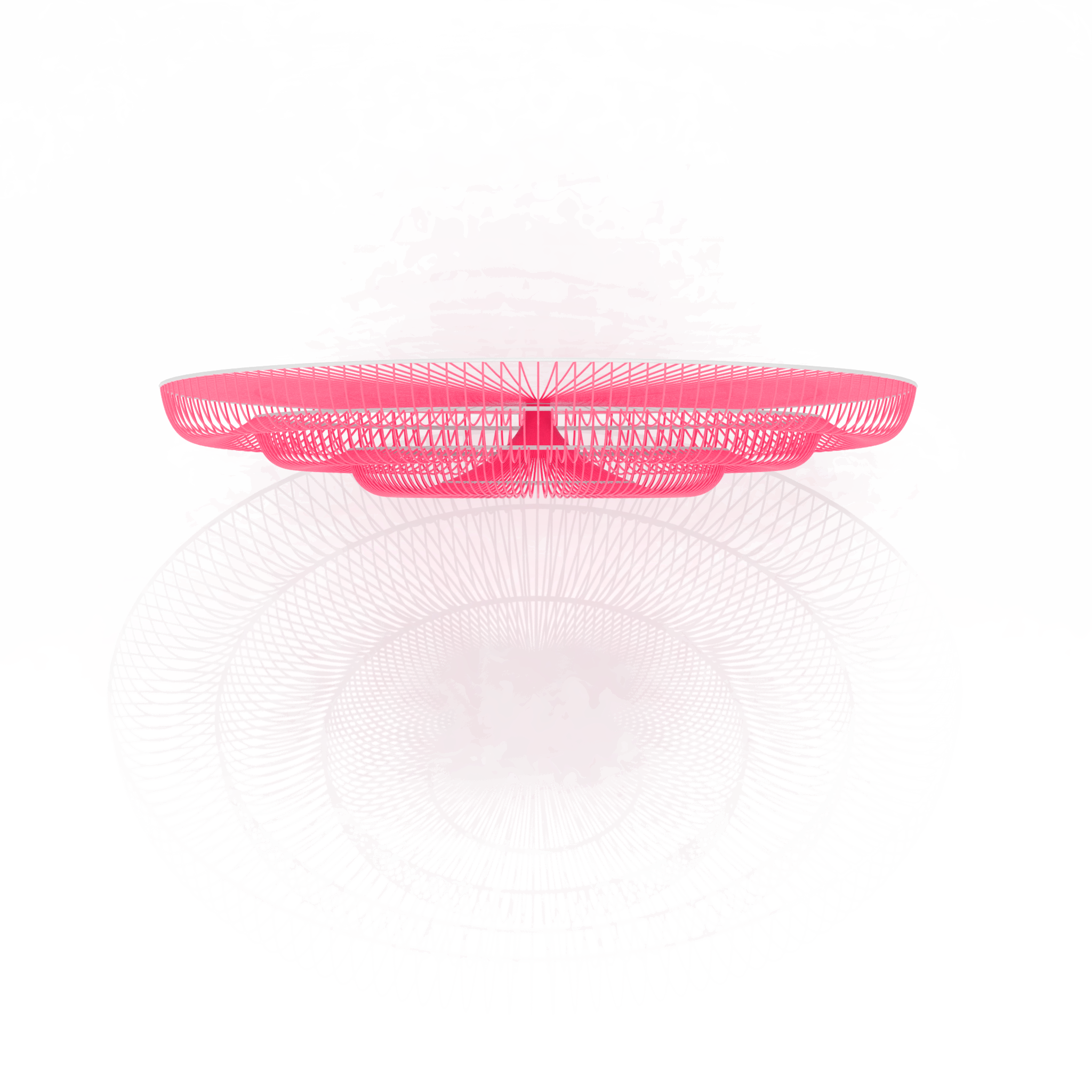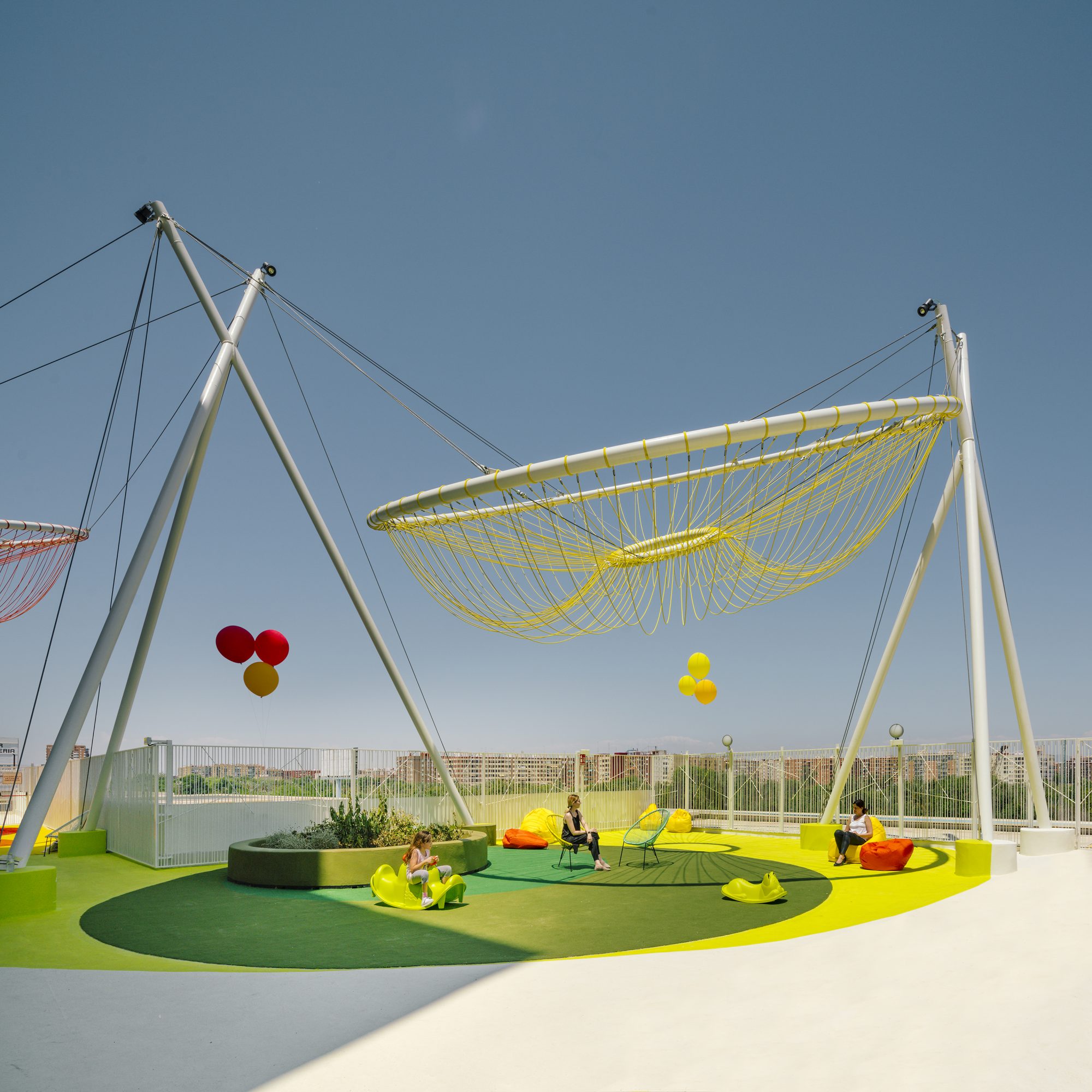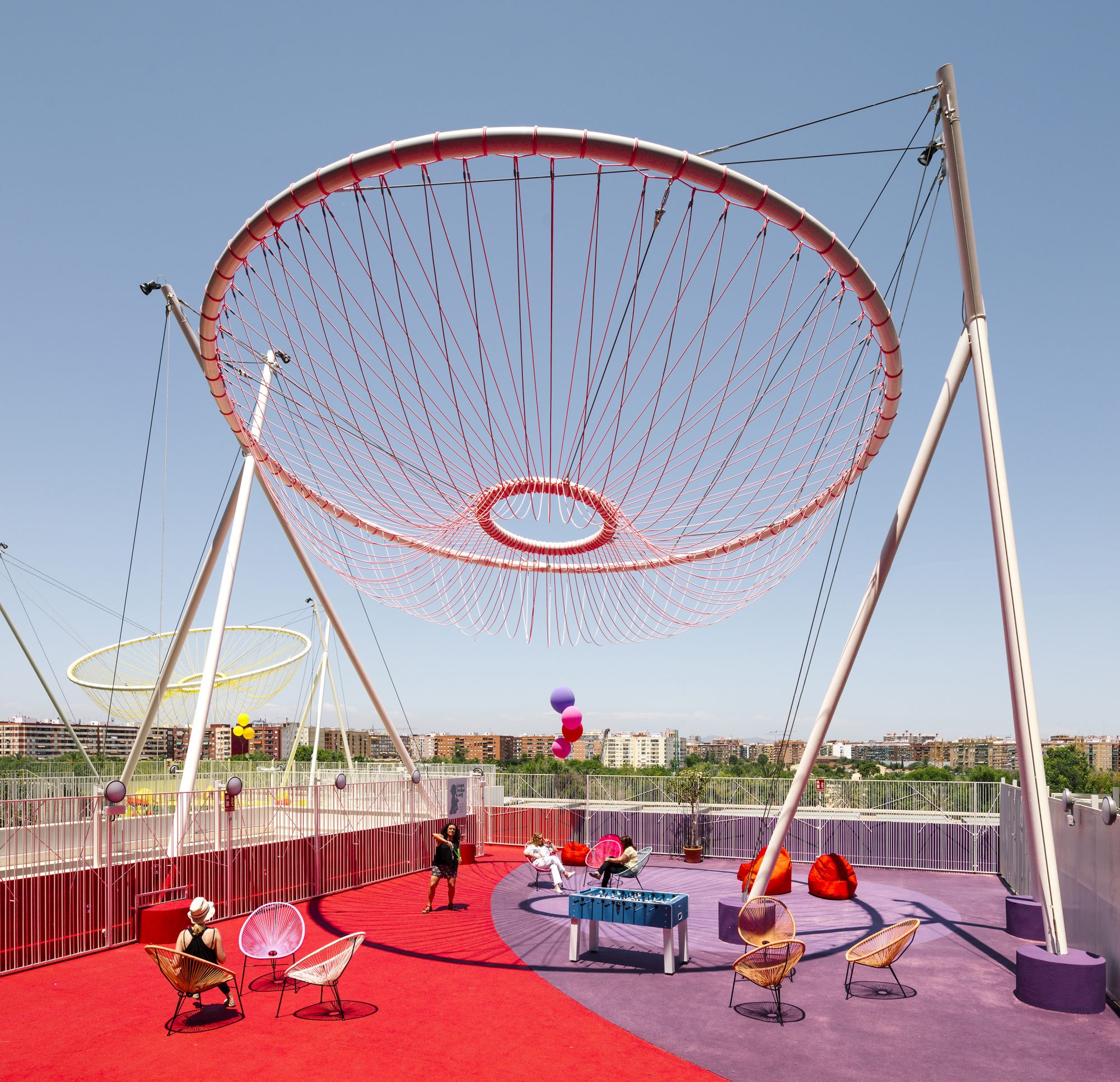This work is the result of the collaboration with Juegaterapia, a non-profit foundation that improves the life conditions of children with cancer. They began delivering donated play-stations to the kids in order to be used during the chemo but they have expanded their agenda and now they transform rooftops and leftover spaces destined for installations in pediatric hospitals into playgrounds for the hospitalized kids. This project offered a great opportunity to test out how design can shape perception, cognition and experience and most importantly can be an instrument to improve every day life.
Several studies have demonstrated the beneficial effects that nature can produce on patiences, in some cases shortening the recovery time. But when collaborating with Juegaterapia foundation it was manifested that despite these facts not all the hospitals were willing to add vegetation into their infrastructures as they are concern about costs and maintenance. As a result of this constrain, we explored and analysed the proper characteristics of natural environments that can be extracted and recreated by artificial means to be inserted in the existing structures.
We were interested in the tension between nature and artifice and in processes of abstraction used in art in order to create bridges between both of them, in some cases literal, in others metaphoric, when two realities that are usually disconnected get linked. Also, we wanted to use the design to create a bridge with the memory of the place, the city of Valencia, a city by the sea.
Through design it is possible to generate artificial systems that perform in a similar way that living systems, without mimicking natural elements literally in form but in their predicative dimension: movement, flexibility, variation of density, sound, lightness… Also an interactive quality is pursuit, actions like sheltering, hanging, lying down under the shade, swinging… frequently done in nature should be also possible in these artificial environments.
In analysing what could be brought from nature we discovered colors, the repetition of the tree troncs, the movement of the leaves, the flexibility of the branches, the different densities, the shade… We started to think about one material that we could use in different ways to recreate all these characteristics, and that would be easy to work with and inexpensive. We thought about the versatility of ropes, their resiliency, and the tactile quality that make them be one of the most used materials in playgrounds.
The intention was to create a magic world, an open space where the elements that we proposed could generate artificial landscapes and that could blend with natural elements, where the different play structures could be used in different ways so the experience of playing could be new and unexpected every time. For that we proposed big hang rope structures that move with the wind, that cast different shades during the day and that cover open and flexible spaces that can be used in different ways, playground, exercise space, stage for shows and concerts… We wanted that this magic world could be enjoyed also from the rooms of the hospital, so the bird view of the playground was an important part of the design. The big hanging structures are perceived from the rooms as colorful elements that each kid could perceive as a different thing, a giant flower, a jellyfish, a spaceship…
